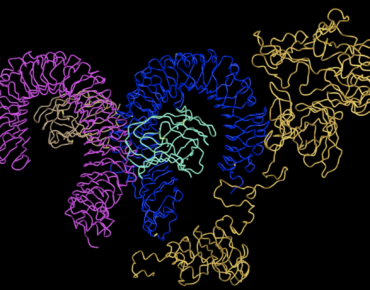AI Tool Emerges to Accelerate COVID-19 Vaccines that Battle New Virus Mutations

A growing list of global COVID-19 variants is prompting disease researchers to employ AI models trained using bioinformatics data to speed up vaccine development in the critical search to find improved vaccines that can effectively fight the virus mutations.
In a paper published in the journal Scientific Reports, researchers from the University of Southern California’s Viterbi School of Engineering developed a machine learning model to speed vaccine analysis. The investigators claimed their model promises to reduce vaccine design cycles from months to minutes.
The USC researchers developed a deep learning framework for the prediction and design of multi-epitope vaccines that could be used to combat COVID-19 variants. Research on multi-epitope vaccines to combat the coronavirus using immuno-informatics techniques have been ongoing since at least last spring. An epitope is the antigen component recognized by the immune system.
The USC investigators claimed their AI-assisted model eliminated up to 95 percent of vaccine approaches, greatly narrowing the field of promising candidates. The method predicted 26 potential vaccines, of which 11 were identified as best suited for developing a multi-epitope vaccine.
“This AI framework, applied to the specifics of this virus, can provide vaccine candidates within seconds and move them to clinical trials quickly to achieve preventive medical therapies without compromising safety,” Paul Bogdan, an associate professor of electrical and computer engineering at USC Viterbi and co-author of the study, told the university’s news service. “Moreover, this can be adapted to help us stay ahead of the coronavirus as it mutates around the world.”
The machine learning model was trained using a bioinformatics data set dubbed the Immune Epitope Database that catalogs experimental data on antibody and T cell epitopes. The database contains more than 600,000 known epitopes. It also hosts tools for predicting and analyzing the antigen-antibody binder.
The USC deep learning framework combines immuno-informatics computer simulations with deep neural network techniques to predict potential vaccine approaches based on the SARS-CoV-2 spike protein sequence. “The 3D structure of the designed vaccine is predicted, refined and validated by in silico tools,” the researchers reported this week.
The AI-based tool addresses the lengthy process of evaluating and selecting vaccine candidates. No such tool previously existed for sorting predictions, then analyzing and selecting the most promising vaccine candidates.
The USC framework called DeepVacPred instead uses a deep neural network architecture to “directly predict a very small number of potential vaccine subunits within a second and start the following evaluation and vaccine construction on a much smaller amount of data,” the investigators reported.
As more coronavirus variants emerge, “DeepVacPred allows us to quickly check for newly emerging threats caused by the RNA mutations of the SARS-CoV-2,” the researcher said. “We prove that our vaccine can tackle the virus RNA mutations.”
The proposed vaccine design framework can tackle the three most frequently observed mutations and be extended to deal with other potentially unknown mutations, Bogdan added.
The AI research was funded by the National Science Foundation, the U.S. Army Research Office, Defense Advanced Research Projects Agency and a grant from Northrop Grumman Corp.
Related
George Leopold has written about science and technology for more than 30 years, focusing on electronics and aerospace technology. He previously served as executive editor of Electronic Engineering Times. Leopold is the author of "Calculated Risk: The Supersonic Life and Times of Gus Grissom" (Purdue University Press, 2016).












